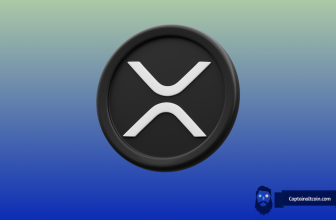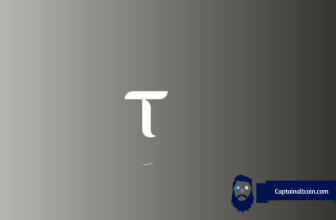
Arbitrum (ARB) just picked up a fresh dose of attention after Nasdaq-listed Enlivex announced a $212 million treasury dedicated to buying RAIN tokens, which run on Arbitrum.
They’re not buying from the team, they’re buying straight from the open market. That’s real demand flowing into an Arbitrum-based protocol, and it puts a spotlight on how the network is being used outside of the usual DeFi crowd.
Meanwhile, Arbitrum developers are currently in the middle of a technical debate with Ethereum researchers around WASM vs. RISC-V-a telling sign of how large of a role the project now plays in Ethereum’s long-term plans.
And with a major ecosystem event happening in Hong Kong focused on AI agents and interoperability, Arbitrum is clearly trying to strengthen its presence in Asia.
The ARB price is trading around $0.2126, and these three catalysts could have a big impact on where the price goes in 2026.
Read Also: Here’s Why Ethena (ENA) Price Is Up Today
What you'll learn 👉
DAO Governance & Treasury Strategy
Arbitrum has one of the largest DAOs in the entire crypto space, with control over $3 billion in ARB. Much power sits in the hands of the community: upgrades, incentives, developer grants, even the future of the ecosystem.
The downside? It can go either way.
If the DAO pushes for things like more incentives, revenue-sharing, or giving ARB stakers a slice of sequencer fees, that could help support demand long-term.
But governance drama, big votes, or controversial proposals can easily trigger sell-offs — especially since 78% of circulating ARB is still held by early investors and teams. And don’t forget: $120 million worth of ARB unlocks every month through 2026.
One vote to watch is the 2026 Security Council election on November 27. The results could affect how fast or slow Arbitrum evolves next year.
Layer 2 Market Share
Arbitrum still leads most Ethereum L2s with $2.88B in total value locked, but competition is heating up fast.
Coinbase’s Base chain has grown to $4.32B, zkSync continues to lean on low fees, and a lot of crypto’s new retail activity is happening on exchanges rather than decentralized apps. Even though Robinhood uses Arbitrum for tokenized stocks in Europe, there’s always a chance they eventually migrate to their own L2.
For Arbitrum to stay ahead, it needs its core projects – like GMX, Pendle, Camelot, TreasureDAO, RAIN and others – to keep growing.
Daily transactions sit at 2.5 million, and stablecoin liquidity is $6.6B. Those numbers need to keep moving up, especially with Base onboarding 50 million monthly users through Coinbase.
If Arbitrum starts losing ecosystem leaders or stablecoin activity, it could pressure the ARB price.
Read Also: Here’s How High PancakeSwap (CAKE) Price Could Go If It Nails This Setup
Inflation & Macro Pressures
ARB token supply increases by 2% every year, which adds roughly 112 million new tokens annually beginning in March 2024. That extra supply can drag on price unless Arbitrum introduces burns or demand rises significantly.
On the macro side, altcoins are still struggling. Bitcoin ETF outflows hit $3.5B in November, and the Altcoin Season Index is sitting at 23/100, which basically means liquidity is avoiding riskier assets.
The ARB price has also been underperforming compared to ETH, dropping 47% in the last 90 days, while ETH fell 19% in the same period. For ARB to recover, the market needs stability, and Ethereum DEX volume needs to pick up again.
Moreover, Arbitrum still has strong fundamentals: big treasury, active developers, institutions testing Arbitrum-native assets, and growing momentum in Asia. But inflation, unlocks, and stronger competition from Base and zkSync make the next year especially important.
These three catalysts, governance, market share, and inflation/macro conditions, will play the biggest role in where the ARB price lands in 2026.
Subscribe to our YouTube channel for daily crypto updates, market insights, and expert analysis.







